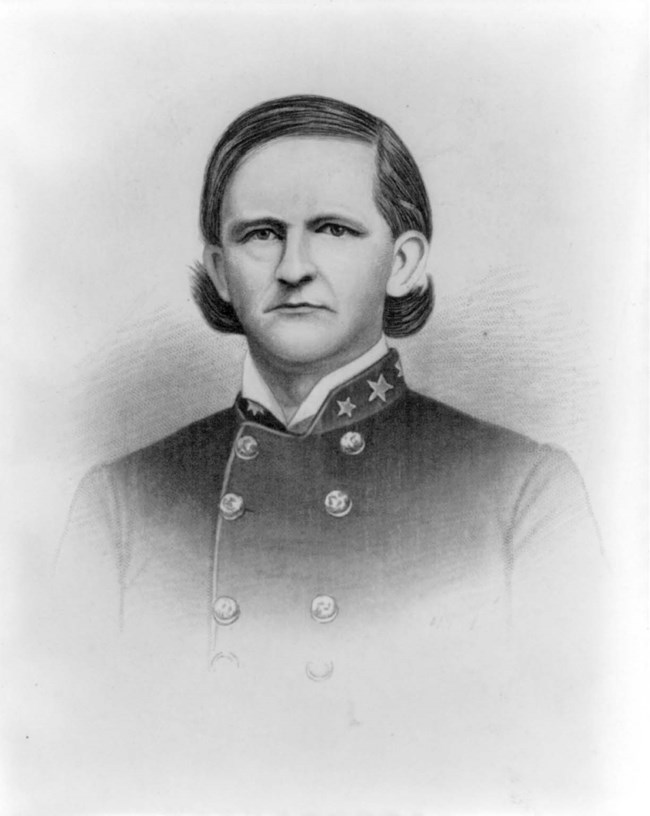Last updated: October 11, 2022
Article
Thomas R. R. Cobb

Library of Congress
Born in 1823, Thomas Reade Rootes Cobb became a lawyer by the age of nineteen. In the antebellum South, he quickly garnered a reputation for his fiery support for slavery and secession. Cobb was most well-known for writing An Inquiry Into the Law of Negro Slavery in the United States of America. Cobb’s legal defense of slavery was the most significant proslavery argument of its day and made Cobb a leading figure in the secession movement in his native state of Georgia.
Cobb represented Georgia in the state secession convention and later served as a delegate to Montgomery to establish the government of the Confederacy. He was one of the people who drafted a provisional constitution for the Confederacy and served as a Confederate congressman. Cobb left politics in the summer of 1861 to join the Confederate Army. He organized "Cobb's Legion" from several counties across Georgia and served as commander with the rank of colonel. Cobb's Legion did not see much of the fighting during the Peninsula Campaign, and Col. Cobb actually left the Legion briefly for a stint with the cavalry. He returned to the Legion on September 24, 1862, missing the battle of Antietam by one week.
As a military leader Cobb was popular with his men, but had great disdain for most of his superiors. He disliked West Pointers and many of his surviving letters contained scathing criticism of his leaders, including General Robert E. Lee, President Jefferson Davis, Vice-President Alexander Stephens, and Secretary of War Judah Benjamin. Cobb was keen for promotion and equally paranoid of people seeking to undermine him. He felt that General Lee condescended to him and his political enemies were withholding his promotion. Unknown to Cobb, Lee personally recommended him for promotion, and on November 1st, 1862 Cobb rose to the rank of Brigadier General within James Longstreet's Corps.
The next month at the Battle of Fredericksburg, Cobb found himself stationed in the Sunken Road along Marye's Heights. His men successfully repulsed repeated Federal assaults on their position throughout the day on December 13, 1862. Between the first and second major wave of attacks against the Confederate position, Cobb was hit with shrapnel and mortally wounded. He had been standing behind the Stephen's House when an artillery shell exploded through the house. "A piece of shell [grazed] the right thigh and struck the left where it lodged, breaking the bone and severing the femoral artery." As he was carried off the field to a hospital, General Cobb called out to his men, "I am only wounded boys, hold your ground like brave men."
Cobb's evacuation did not go smoothly. According to one member of the 24th Georgia, "the fire was so heavy that they laid him down and sheltered themselves under the wall for a little time." Shortly after arriving at the hospital behind the heights, General Cobb bled out and died. His body was transported back to Georgia and buried in Athens.
Cobb’s family placed a small stone memorial to Thomas Cobb along the Sunken Road in 1888, one of the earliest known monuments to be placed on the Fredericksburg Battlefield.
